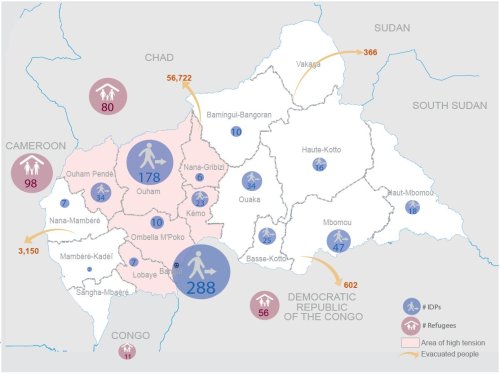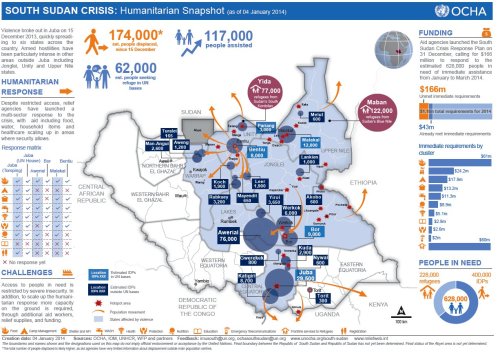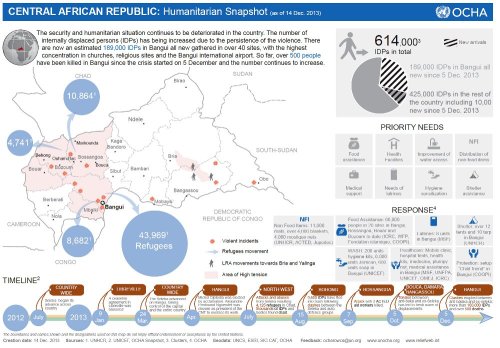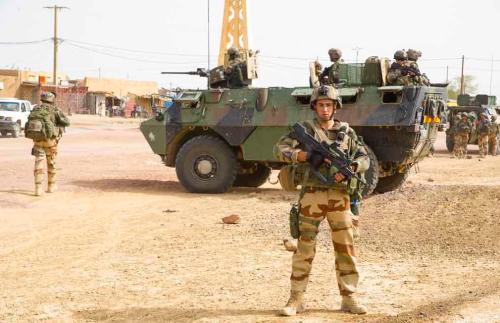Yesterday, the United Nations Security Council unanimously adopted Resolution 2149, which approves the establishment of a UN peacekeeping force in Central African Republic. The resolution provides for a force of approximately twelve thousand personnel under Chapter VII of the UN Charter, including some ten thousand troops and almost two thousand police. The crisis in CAR has left thousands dead, displaced almost seven hundred thousand people internally, and forced almost three hundred thousand to flee the country. The UN estimates that over two million people, approximately half of the country’s population, are in need of humanitarian assistance.

Map showing numbers of IDPs (in thousands) by state in CAR, refugees in neighboring countries (in thousands), along with highlighting of areas of significant tensions, from OCHA’s Humanitarian Snapshot, dated 10 February 2014.
The decision comes as the African Union’s African-led International Support Mission in the CAR (MISCA), support by French forces, continues to struggle with violence in the country. MISCA, which is already operating with a UN mandate, had some six-thousand personnel at the beginning of last week. Last Friday, Chadian forces pulled out of the country following clashes in the capital Bangui in which ten people were killed. Chadian troops claimed they were acting in self defense, but other reports suggested they had fired indiscriminately into a crowd. This is not the first time Chadian peacekeepers have been involved in questionable incidents or had been accused of complicity with ex-Seleka rebels. The loss of the eight-hundred and fifty-man contingent was a significant blow to MISCA.
MISCA is scheduled to turn over responsibility for peacekeeping to the new UN force, the UN Multidimensional Integrated Stabilisation Mission in CAR (MINUSCA), by 15 September 2014. There is no word yet what countries might step forward to provide MINUSCA with the additional forces it requires. Many African nations are already participating in the effort, as well as efforts elsewhere. France, who has been a major contributor to peacekeeping efforts on the continent and who has been in CAR since the beginning of the year as part of their Operation Sangaris, has had only limited success in rallying the rest of the European Union to contribute forces. In January, the EU approved the deployment of a small five-hundred strong force to the country. The force, dubbed EUFOR RCA (EU Force République Centrafricaine) was eventually expanded to one thousand personnel, but was delayed and only arrived in the country last week.
The United States has also supported the efforts in CAR, as part of Operation Echo Casemate. However, so far this support has been limited to logistical support and the airlifting of additional African peacekeeping forces. The US will likely continue to provide this support to the expanded UN mission, but there is no indication that any American troops will deploy to the country to take a more active part in the peacekeeping mission.


